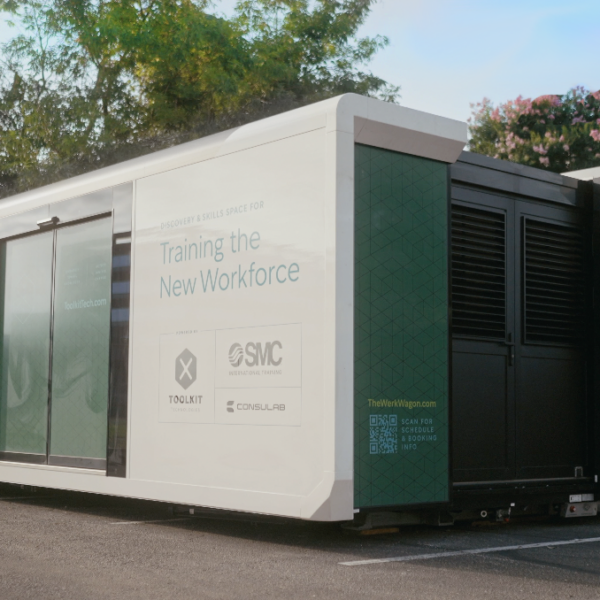Mechatronics
Mechatronics is the big-strange word that covers so much. The marriage of mechanical, electrical, computer and software skills in order to work with smart technologies, TOOLKIT prepares students for various career pathways within the ever-changing landscape of Mechatronics.
Students learn integrated systems that combine electrical technologies with mechanical technologies and computer programming for real-world skills that directly relate to modern jobs in manufacturing and automation.
Mechatronics sits at the intersection of mechanics, electronics, and computing, and is built on the idea of creating simpler and smarter systems. Toolkit provides the training systems that empower mechatronics technicians and specialists with the skill sets to thrive in contemporary, advanced automated manufacturing industries.
Electro-mechanical technologists and technicians combine knowledge of mechanical technology with knowledge of electrical and electronic circuitry. They operate, test, and maintain unmanned, automated, robotic, and/or electromechanical equipment.
Electro-mechanical and mechatronics technologists and technicians typically do the following:
- Read blueprints, schematics, and diagrams to determine the method and sequence of assembly of a machine or a piece of equipment
- Verify dimensions of parts, using precision measuring instruments
- Operate metalworking machines to make housings, fittings, and fixtures
- Inspect parts for surface defects
- Repair and calibrate hydraulic and pneumatic assemblies
- Use instruments to test the performance of electromechanical assemblies
- Use soldering equipment and hand tools to install electronic parts and hardware
- Operate, test, or maintain robotic equipment
- Analyze and record test results
They install, maintain, and repair automated machinery and computer-controlled mechanical systems in industrial settings, and also test, operate, and/or maintain robotic equipment at worksites. This equipment may include unmanned submarines, aircraft, or similar types of equipment for uses that include oil drilling, deep-ocean exploration, or hazardous-waste removal.
They average pay for someone with these skills is over $61,040.00.
Showing the single result
-
Werk Wagon Portable Training Center
Toolkit is proud to offer schools and training facilities a completely customizable and mobile solution for workforce training, STEM education, CTE skills development with our new WERK WAGON portable training centers!
Completely customizable, modular and portable training in a whole new way. Our Werk Wagon is perfect for schools looking to bring their training and expertise into the community, or share resources between schools, or with physical space limitations that require larger bond and/or construction money. Toolkit’s Werk Wagons are mobile, portable Workforce Training Centers and simply amazing!
Customizable sizes, dimensions, and physical features allow these mobile training centers to fit perfectly to your needs and to focus on your needed training areas.


